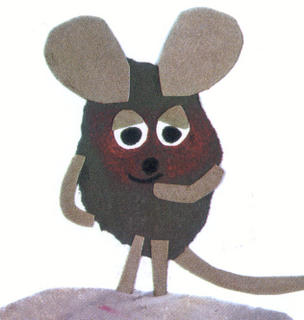Redemption
Do you ever feel like Jean Valjean, the character from Les Miserables? Have you ever thought about it? At the beginning of the story, as presented in the stage production, Valjean is a prisoner of the state because he stole a loaf of bread to feed his sister’s children. He then tried to escape two or three times, which lengthened his prison term. Upon receiving his parole, he could not make a decent wage because he was always branded as a convict…until one night when he dined and stayed at a Bishop’s house. After the Bishop’s household was in bed, Valjean arose and stole the silver and fled, acting in a way consistent with how others perceived him—as a criminal. Valjean was caught with the silver but told the police that the Bishop had given him the silver. The police brought him and the silver back to the Bishop to inquire whether this was true. In an exercise of grace, the Bishop confirmed Valjean’s story and then gave him the silver candle stick holders as well. The police withdrew because according to the Bishop no crime had been committed, but Valjean was confronted with the desperation of his guilt and what he had become. He was also confronted with the love and sacrifice of the Bishop, showing him inexplicable grace. Valjean tried to give the silver back, but the Bishop told him to keep it, to use it in his new life that he would live to God, and leave his life of crime.
And that is what Valjean did. He broke his parole and began a new life under an assumed identity, eventually becoming a successful factory owner and mayor of the town. Through it all he sought to exercise the same grace which was given to him. The criminal Valjean was no more than a memory until Inspector Javert, who had been hunting for Valjean since he broke his parole, arrested a man whom he believed to be Valjean. Having compassion on this innocent man Valjean went to court and testified that he was Valjean and not the man accused. Confirmation of this fact causes Valjean to flee from his past and from Inspector Javert. In the process of fleeing, and as an expression of mercy, Valjean takes into his care Cosset, who has been orphaned by the death of her mother, for which Valjean feels responsible. The girl and Valjean flee together to Paris, and live relatively unnoticed until years later when Cosset is a young woman and Inspector Javert is drawn to Paris on his search for Valjean. Many other events occur, Valjean and Javert struggling back and forth. In the end, Javert is confronted with the righteousness of Valjean’s life of sacrifice and love; this criminal who no longer behaves like a criminal. Unable to harmonize his views justice with the grace shown by Valjean, Javert throws himself into the river and drowns.
Isn’t this the same struggle that Jesus Christ had with the Pharisees? The Pharisees only wanted to give grace to those who deserved it, but Jesus showed love and grace to all who asked of him. And there are times when we might be Javert, unable to understand that what is past is past, and things are made new, consumed with earning the favor of God, and not accepting the grace so freely provided. When we cannot fully accept this grace, we also have difficulty fully offering it to others. Then we look at others who might be more like Valjean, who receive this grace and understand that others are equally in need of it, yet feel the distain and misunderstanding of those who discount the sincerity of their motives.
Les Miserables is a story about tragedy in the lives of many, and yet it is a story of redemption. A story of what a life arrested by the grace of God can do in the lives of others. Valjean was trapped in the mire of his guilt and of his past, yet the gesture of the Bishop, extending grace and love of God that no one else would offer struck at his heart and he was not the same man. Valjean’s life was not easy. Surrounded by so many questions about his past he disappeared so that Cosset could live free from his shadow. Yet Valjean did all this in love and dignity.
Lord, grant us the courage to extend to others this same sacrificial love.


